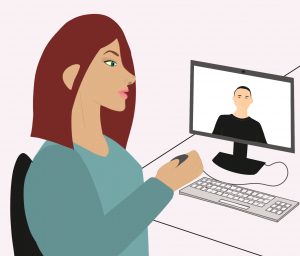Lisa has been meeting with the Stroke Clinical Psychologist regularly for the last two months. Lisa was keen to understand what was happening to her, if there was a name for it or if she was “losing her mind”. The Stroke Clinical Psychologist explained that her symptoms were closest to a diagnosis of Adjustment Disorder, with mixed anxiety and depressed mood.

In therapy, Lisa and the Stroke Clinical Psychologist have been working on a formulation (shared understanding) of why Lisa has been feeling as she has. They identify that the sudden onset of a serious illness has shaken Lisa’s belief in herself as healthy, fit and capable. Lisa is still experiencing residual symptoms of stroke, including fatigue and sensitivity to noise. This is making it hard for her to do the things she enjoys or be in social situations, so she avoids them. This is leading her to feel isolated and depressed. Lisa experiences high levels of anxiety when she thinks about doing anything physical (e.g. running), which is one of the ways she used to cope with stress. Lisa wants to feel and seem like her “normal self” so she is reluctant to talk to her friends and family about how she is feeling. They seem to think that she is fine, as she doesn’t have any obvious physical impairment from her stroke. This is reinforcing Lisa’s expectations of herself that she should be “back to normal by now” and that she is failing because she isn’t. She often worries about whether she will ever get better, or be able to go back to work, particularly at night. This is making it harder for her to sleep, and so she is even more tired in the daytime. When she has these worries in the daytime, she tries to push herself even harder to get back to her “normal self”, or distract herself by keeping busy, but these strategies tend to lead to her feeling even more fatigued and irritable. At this point, she criticises herself for not being a good enough mother or partner. She feels hopeless and depressed.
Page last reviewed: 05 Oct 2021


